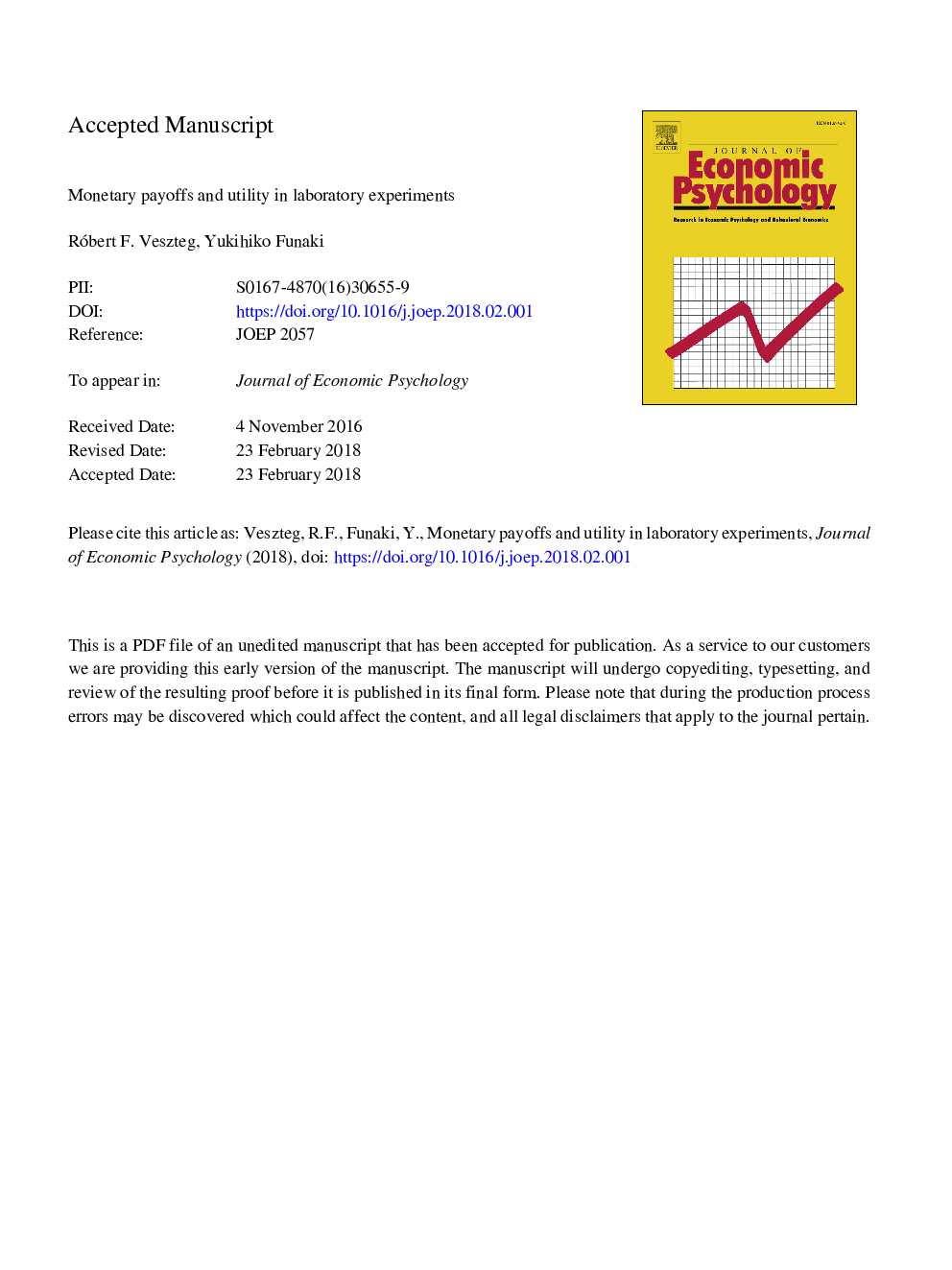| Article ID | Journal | Published Year | Pages | File Type |
|---|---|---|---|---|
| 7244048 | Journal of Economic Psychology | 2018 | 33 Pages |
Abstract
Experimental research in economics relies on performance-dependent monetary incentives to implement theoretical games in the laboratory. While the set of players and the set of strategies of those games are unambiguously defined and controlled by the experimenter, utility is typically either assumed to coincide with monetary payoffs or is estimated ex post based on observed actions. We follow a different path and discuss results from an experiment on simple 2-person games in which participants were repeatedly asked to report their expectations on the opponent's behavior and their own level of satisfaction for each possible outcome of the game. This approach allows us to reflect on experimental methodology by directly comparing monetary incentives with (perceived and declared) utility. We find that, albeit helpful, repetition and experience are unable to completely align utility with monetary incentives. While most participants (57%) seek to maximize money earnings in the experimental laboratory and tend to perceive the games in the intended way, a small - yet non-negligible - fraction (27%) of the subject pool consistently interprets the game and, therefore, acts in an unexpected way.
Related Topics
Social Sciences and Humanities
Business, Management and Accounting
Marketing
Authors
Róbert F. Veszteg, Yukihiko Funaki,
